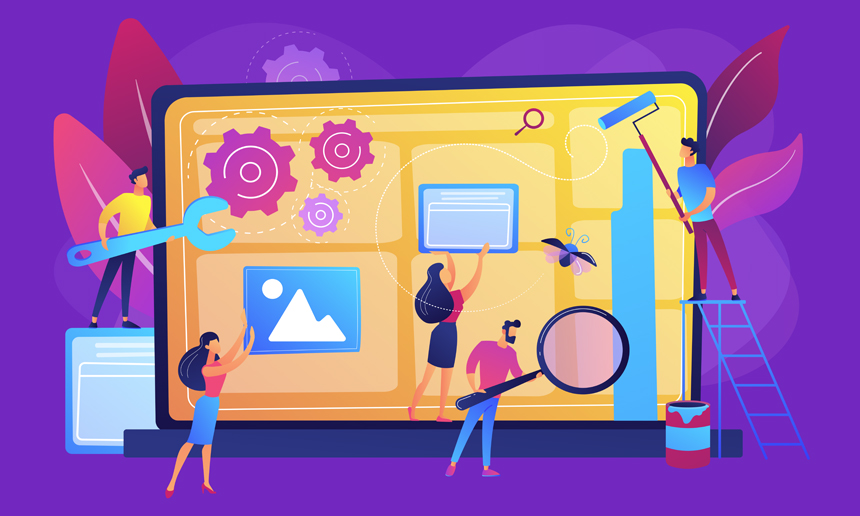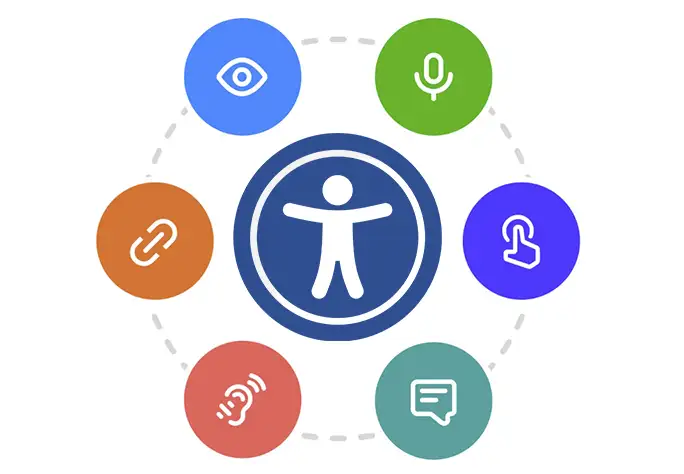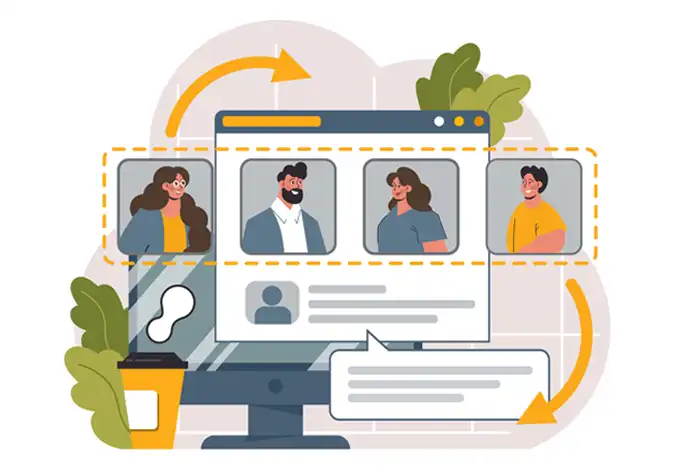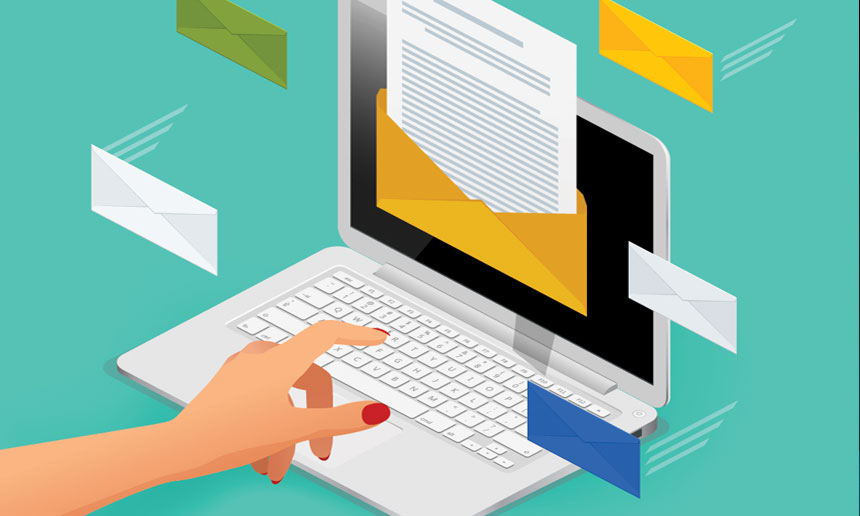Regularly website maintenance is crucial to ensuring that your site is healthy and running at full capacity. Simply having your website LIVE and running is not enough. Listed here are many reasons you should update your website regularly.
Software Updates WordPress releases an update an average of every 2 months. Typically to fix bugs and a variety of security issues. Updates also add new features and functionality that can improve the overall design and performance of your site. The main components that need to be updated regularly are the WordPress core, themes, plugins, and other software that powers your site so that everything continues to run smoothly.
Plugin Management Plugins are independent pieces of software designed by various developers outside of WordPress. When WordPress releases updates to its core software, it’s the developer’s responsibility to keep their plugins up-to-date. This is why before even choosing to install a plugin, it’s important to research the plugin, read reviews, and check the last updates performed. Once installed, it’s important to continue updating the plugin as developers make updates for compatibility with WordPress.
Software Updates and Conflicts Although it is possible to perform the updates yourself, doing it properly is quite time-consuming and risky. It’s important to have updates performed regularly by a professional developer who knows what they’re doing and can monitor and tackle any issues that may arise from the update. Software updates usually go smoothly, but occasionally they conflict with each other and can trigger malfunctions that can cause a poor experience for your visitors, or worse yet bring your site down entirely.
Security Issues with WordPress Another reason why it’s important to have a professional perform consistent WordPress maintenance is to prevent possible security breaches. When updates are installed, there are changes to your files making your site vulnerable to hacker attacks. Part of the maintenance process, with WordPress performs, is consistent backups of your site. Backups are also performed before updates are made. Any CMS (Content Management System) based website is vulnerable to hacker attacks. Keeping your WordPress website core, plugins and themes up-to-date will prevent your website from being vulnerable to malware infections and outside attacks.
Hackers Hackers will go after both large and small websites, they don’t discriminate. It is important to keep your website up-to-date. Too often, website owners put maintenance on the back-burner because they have a small website or don’t think anyone would have reason to steal information from their site. But, if updates are ignored, you are a prime target for malicious attacks.
For hackers, it’s not about stealing information, but hijacking your site to use its server as a hosting environment to send spam emails or attack other servers. Hackers often create bots to search for vulnerable sites. Once an access point is detected, the hackers make their way in and take control of the server. The server is then used to send out spam to massive email lists. This will damage your site’s reputation with search engines and trigger them to block your IP address, rendering your site virtually non-existent in search results. hacks can remain dormant for a long time, while the hacker infects other websites and builds an army of exploited servers, referred to as “botnets.” Hackers use infected servers to perform a Distributed Denial of Service (DDoS) attack on other networks. Botnets send out a swarm of spambots, to infect other sites, set up phishing, and/or facilitate DDoS attacks. This type of attack aims to seize control of multiple services, which is easily accomplished with a botnet.
Software Updates WordPress releases an update an average of every 2 months. Typically to fix bugs and a variety of security issues. Updates also add new features and functionality that can improve the overall design and performance of your site. The main components that need to be updated regularly are the WordPress core, themes, plugins, and other software that powers your site so that everything continues to run smoothly.
Plugin Management Plugins are independent pieces of software designed by various developers outside of WordPress. When WordPress releases updates to its core software, it’s the developer’s responsibility to keep their plugins up-to-date. This is why before even choosing to install a plugin, it’s important to research the plugin, read reviews, and check the last updates performed. Once installed, it’s important to continue updating the plugin as developers make updates for compatibility with WordPress.
Software Updates and Conflicts Although it is possible to perform the updates yourself, doing it properly is quite time-consuming and risky. It’s important to have updates performed regularly by a professional developer who knows what they’re doing and can monitor and tackle any issues that may arise from the update. Software updates usually go smoothly, but occasionally they conflict with each other and can trigger malfunctions that can cause a poor experience for your visitors, or worse yet bring your site down entirely.
Security Issues with WordPress Another reason why it’s important to have a professional perform consistent WordPress maintenance is to prevent possible security breaches. When updates are installed, there are changes to your files making your site vulnerable to hacker attacks. Part of the maintenance process, with WordPress performs, is consistent backups of your site. Backups are also performed before updates are made. Any CMS (Content Management System) based website is vulnerable to hacker attacks. Keeping your WordPress website core, plugins and themes up-to-date will prevent your website from being vulnerable to malware infections and outside attacks.
Hackers Hackers will go after both large and small websites, they don’t discriminate. It is important to keep your website up-to-date. Too often, website owners put maintenance on the back-burner because they have a small website or don’t think anyone would have reason to steal information from their site. But, if updates are ignored, you are a prime target for malicious attacks.
For hackers, it’s not about stealing information, but hijacking your site to use its server as a hosting environment to send spam emails or attack other servers. Hackers often create bots to search for vulnerable sites. Once an access point is detected, the hackers make their way in and take control of the server. The server is then used to send out spam to massive email lists. This will damage your site’s reputation with search engines and trigger them to block your IP address, rendering your site virtually non-existent in search results. hacks can remain dormant for a long time, while the hacker infects other websites and builds an army of exploited servers, referred to as “botnets.” Hackers use infected servers to perform a Distributed Denial of Service (DDoS) attack on other networks. Botnets send out a swarm of spambots, to infect other sites, set up phishing, and/or facilitate DDoS attacks. This type of attack aims to seize control of multiple services, which is easily accomplished with a botnet.
Common Website Maintenance Tasks:
These are some of the more important maintenance tasks that need to be performed on your site.
WordPress Core Updates:
WordPress itself is a fast-moving platform, and new features are added and regularly improved. If the WordPress Core is not up to date, your website gradually becomes less secure and stable, and will not be performing at the level it should be. Not only can this cause a poor experience for your visitors, but it can also have a negative impact on search engine rankings.
Theme Updates: Themes are the framework that make your site look and act the way it does. Like the WordPress Core, Themes are frequently improved and updated for security and performance. Using an out of date theme limits the function, security, and form of your web presence.
Plugin Updates: Plugins are the tools that can be added to your WordPress site to add features and increase its functionality. There are many different plugins available to help you do everything from creating forms to adding visual effects. Plugins are created by different authors and regularly updated. If the author updates your plugins, but they are not installed on your website, you could be missing out on enhanced features or causing security issues and malfunctions on your website.
Off-site Backups: The WordPress platform is stable, but that does not mean it is invincible. In the event that your website is hacked or goes down for some reason, having a backup off-site (on a remote server) can save you from the devastating effects of having to start from scratch. Offsite backups of your website should often be done, especially as you post more and more fresh content.
Security Monitoring & Protection: Security is not something taken lightly by WordPress, however, even as the platform is strengthened; malicious individuals will explore new ways to overcome them. One thing most website owners don’t know is that Google and other search engines will blacklist a malware-infected website, leaving it virtually invisible to search traffic.
Why? Because a hacked website is a security risk to its users, and other websites. It allows for the spread and escalation of malware attacks on other websites, and even attacks against national targets and infrastructure. Ensuring that your security is up to date and at its best is certainly something that should be taken seriously.
Theme Updates: Themes are the framework that make your site look and act the way it does. Like the WordPress Core, Themes are frequently improved and updated for security and performance. Using an out of date theme limits the function, security, and form of your web presence.
Plugin Updates: Plugins are the tools that can be added to your WordPress site to add features and increase its functionality. There are many different plugins available to help you do everything from creating forms to adding visual effects. Plugins are created by different authors and regularly updated. If the author updates your plugins, but they are not installed on your website, you could be missing out on enhanced features or causing security issues and malfunctions on your website.
Off-site Backups: The WordPress platform is stable, but that does not mean it is invincible. In the event that your website is hacked or goes down for some reason, having a backup off-site (on a remote server) can save you from the devastating effects of having to start from scratch. Offsite backups of your website should often be done, especially as you post more and more fresh content.
Security Monitoring & Protection: Security is not something taken lightly by WordPress, however, even as the platform is strengthened; malicious individuals will explore new ways to overcome them. One thing most website owners don’t know is that Google and other search engines will blacklist a malware-infected website, leaving it virtually invisible to search traffic.
Why? Because a hacked website is a security risk to its users, and other websites. It allows for the spread and escalation of malware attacks on other websites, and even attacks against national targets and infrastructure. Ensuring that your security is up to date and at its best is certainly something that should be taken seriously.
DePinho Design Website Maintenance Services:
It’s crucial to understand the vulnerabilities your website may face and take the necessary precautions to protect it, as well as safeguard your business’s reputation. DEPinho Design is based in Putnam and Westchester, NY, we provide comprehensive services for all WordPress websites. Let’s get started. Let’s go!!!




